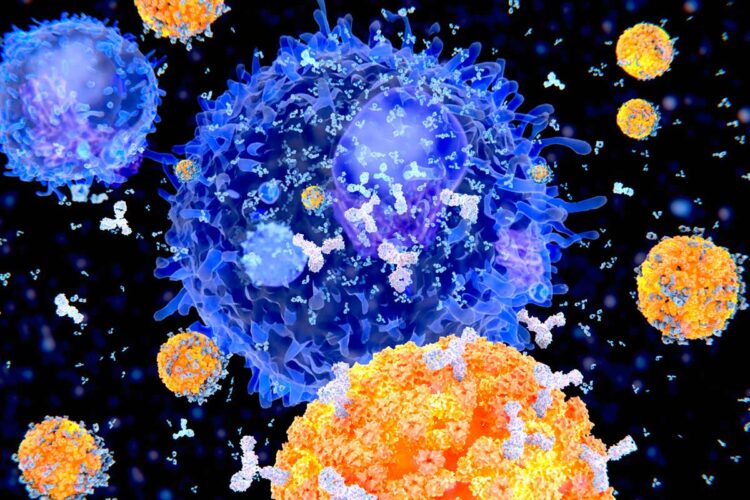By Charlotte Webster-
Around nine in 10 adults in most parts of the UK are likely to have COVID-19 antibodies, latest data shows.
Latest estimates from the Office for National Statistics (ONS) show 89.8% of adults in England are likely to have the antibodies, with the highest percentage of adults testing positive for them estimated to be the age groups 60 to 64, 70 to 74 and 75 to 79 (all 96.8%). The statistics suggest that most of the population have had the infection in the past or have been vaccinated. That was an increase from 79.6 per cent a month ago.
The figure stretched from 84.7 per cent in Scotland (up month on month from 71.8 per cent) to 91.8 per cent in Wales (up from 82.1 per cent). In Northern Ireland, it is estimated that 87.2 per cent of the adult population would have tested positive for antibodies, up from 80.0 per cent.
The ONS said that across all four nations of the UK, there was a “clear pattern” between vaccination and testing positive for Covid-19 antibodies, however the detection of antibodies alone was “not a precise measure of the immunity protection given by vaccination”.
The results of the survey, carried out in partnership with the University of Oxford, University of Manchester, Public Health England and Wellcome Trust, reflect the high take-up of the vaccine, with more than half of the population now fully vaccinated.
The latest estimates from the ONS are based on a sample of blood test results for the week beginning 14 June for people in private households and do not include settings such as hospitals and care homes.
Across England as a whole, the highest percentage of adults testing positive for antibodies were estimated to be the age groups 60 to 64, 70 to 74 and 75 to 79 (all 96.8 per cent).
The lowest percentage was for 16 to 24-year-olds (59.7 per cen
Commenting on the figures, Meaghan Kall, lead epidemiologist in Covid-19 epidemiology cell at Public Health England, said the antibody data suggested those aged 25 and over were “very close to herd immunity” through vaccination and previous infection.
Herd immunity doesn’t guarantee immunity, but reduces the chances of infections spreading from person to person, helping to protect those who are still vulnerable to catching it.
The human body takes between two and three weeks after infection or vaccination to make enough antibodies to provide protection against the virus
The lowest percentage was for 16 to 24-year-olds at around 59.7%.
In Wales, 91.8% of adults are estimated to have antibodies in their system, in Northern Ireland, the figure is 87.2% and in Scotland the estimate is even lower, at 84.7%, making it closer to eight in 10 adults
Antibodies then remain in the blood at low levels and can decline to the point where they are no longer detectable.
It is also not yet known how having detectable antibodies, now or at some time in the past, affects the chance of getting COVID-19 again or how long they remain at such levels in the blood.
The latest estimates are taken based on a sample of blood test results from the week beginning 14 June and are for people in private households, not including settings such as hospitals and care homes.
The ONS said there is a clear pattern between vaccination and testing positive for antibodies but “the detection of antibodies alone is not a precise measure of the immunity protection given by vaccination”.




